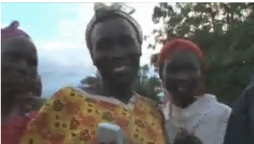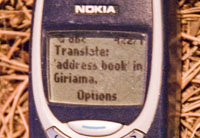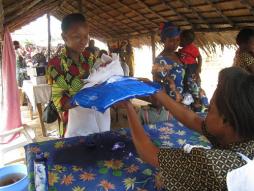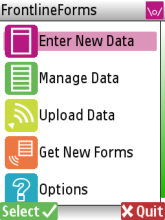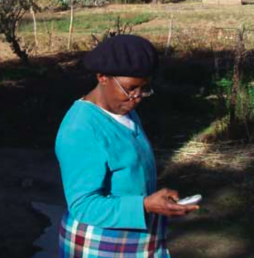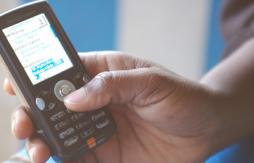In early 2008 violence errupted in Kenya after the most recent elections there the previous December. Post-election tribal warfare resulted in the death of 1,200 people, internally displaced 400,000 to 600,000 people, and destroyed more than 41,000 properties. The economic cost of the crisis has been estimated at more than KSh 100 billion (approx US $ 1.5 billion), with more than half a milion jobs lost. The World Bank noted that over 2 million Kenyans may have been driven into poverty as a result of the violence. Food security also declined with farmers unable to cultivate and harvest their farms in early 2008.
Steve Song has done it again. A fellow at the Shuttleworth Foundation, he critiques Nathan Eagle's new txteagle venture to tap into the 'cognitive resources' of millions of mobile-phone users in developing countries. Nathan recently gave a talk at eTech, presenting texteagle. Here is the video of Nathan's presentation.
In short, txteagle, in the words of the BBC, is "a new scheme that distributes simple tasks via text messages is being used to target a potential untapped work force in developing countries. Txteagle is making it possible for many people in countries like Kenya to earn small amounts of money by completing simple tasks like translations or transcriptions."
I have been meaning for a while to respond to a paper Rebekah Heacock, a graduate student at Columbia, wrote last year. Hancock describes in Mobile Activism in African Elections (PDF) three recent elections in Kenya, Nigeria, and Sierra Leone, and how mobile technology was used for both crowd-sourced and systematic election monitoring.
She poses that:
The proliferation of mobile phones in Africa is transforming the political and social landscape of the developing world, empowering people to source and share their own information and to have a greater say in what comes to international attention. This paper compares the use and impact of mobile technology in three recent African elections: Nigeria, Sierra Leone and Kenya.
This post was written by Marcia Stepanek of Cause Global where it was orginally published. Marcia graciously allowed up to repost it here.
Today is International Women's Day and we are celebrating by featuring innovative women in the MobileActive.org community who are making a difference by using mobiles for social impact. Many of these social innovators are indeed focusing their work on improving the lives of women - their health, incomes, and social and political well-being. We salute you all!
Melissa Loudon is a research officer at the Centre for Spatial Data Management at the University of Capetown in South Africa. She is also a talented mobile developer who used to work at Cell-Life, and she has written extensively for us, testing applications. Her most recent review of mobile tools for social development focused on data collection using a mobile phones.
There is a slew of new challenges (disclosure: I am a judge on some of them) and a few other opportunities for MobileActives. Take a look - and thank you to David Sasaki for compiling!
Originally published on the PBS blog Mediashift.
Mobile phones are everywhere. They have long surpassed the Internet in number of users, and in some parts of the world, mobile phones now rival television in reach. The mobile tech economy (at least until recently) was booming with telcoms and handset manufacturers fiercely competing in emerging markets, and software giants like Microsoft and Google entering the mobile industry in earnest. There are now somewhere between 3.5 billion and 4 billion mobile subscriptions worldwide, with the fastest growth happening in developing countries.
